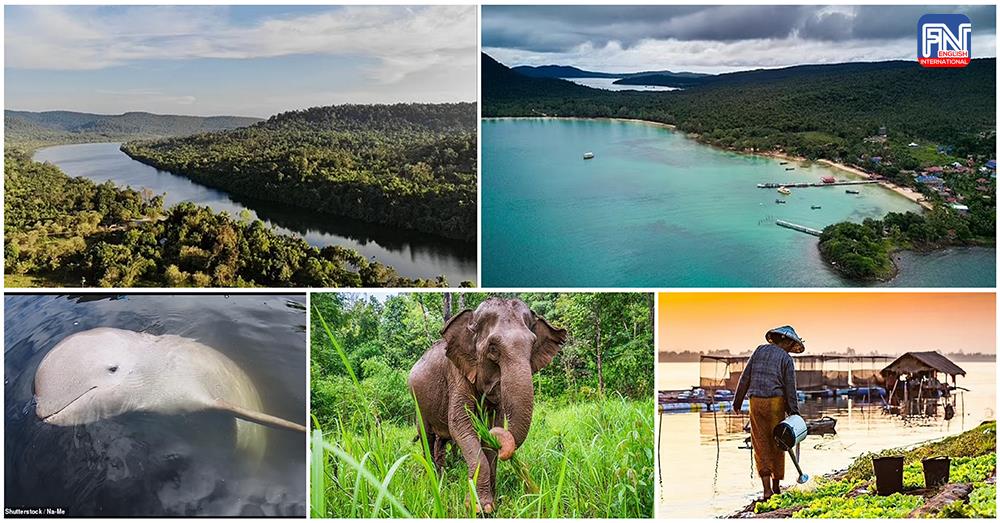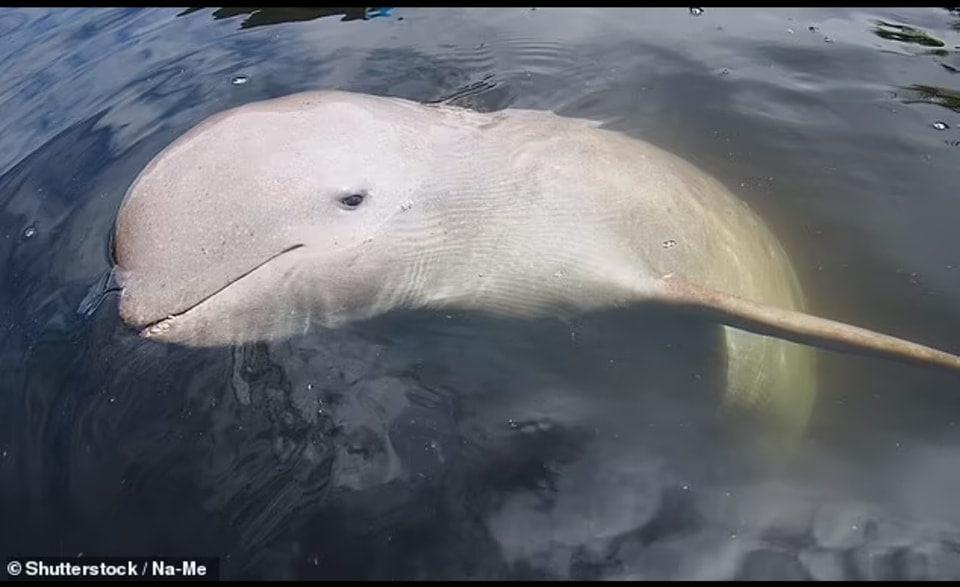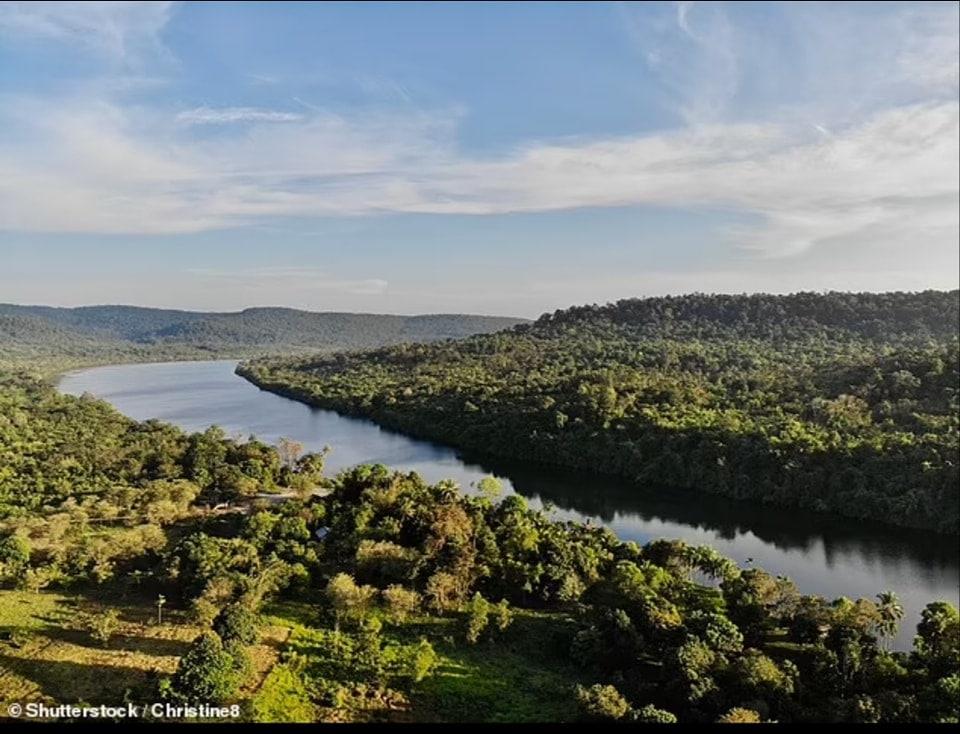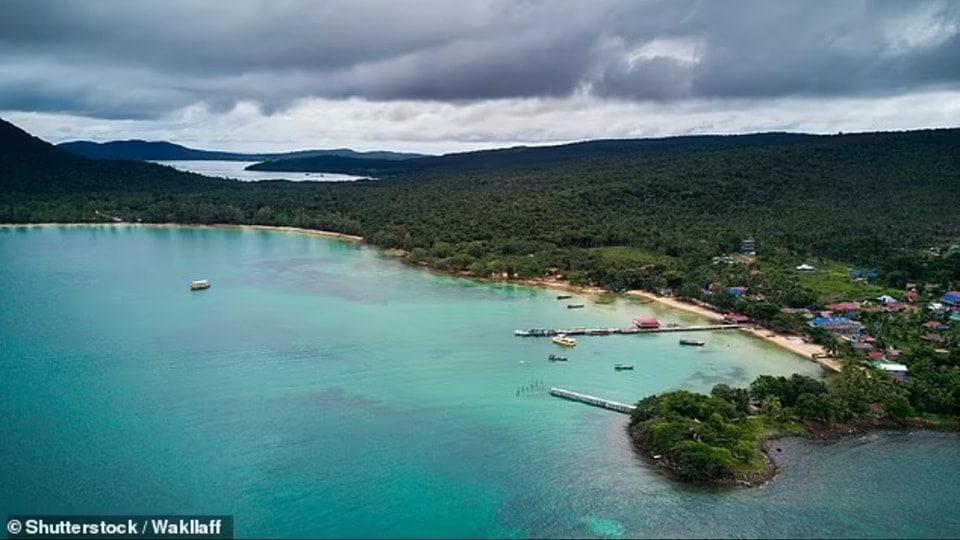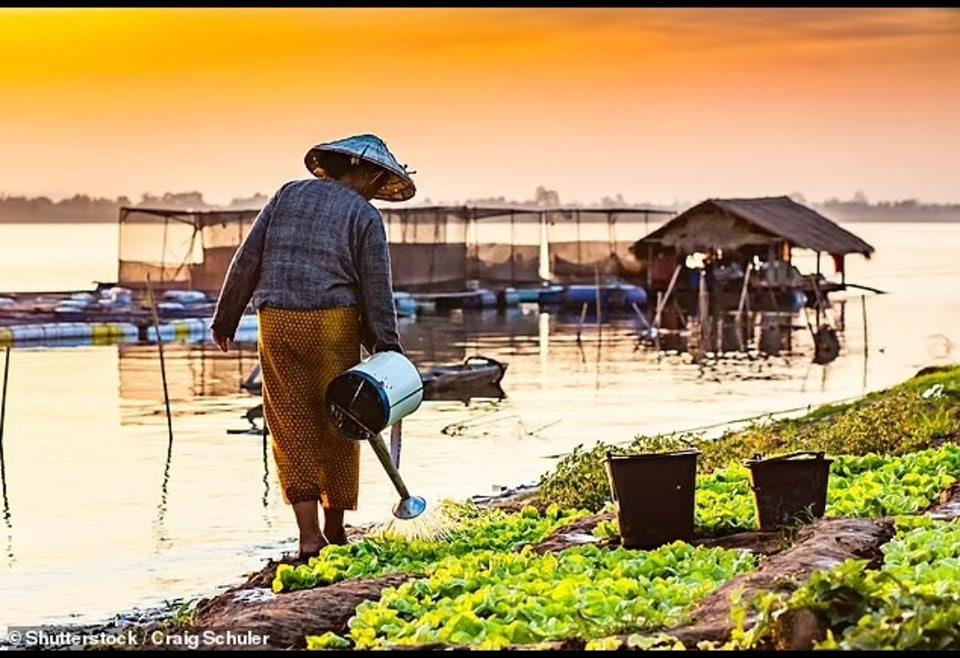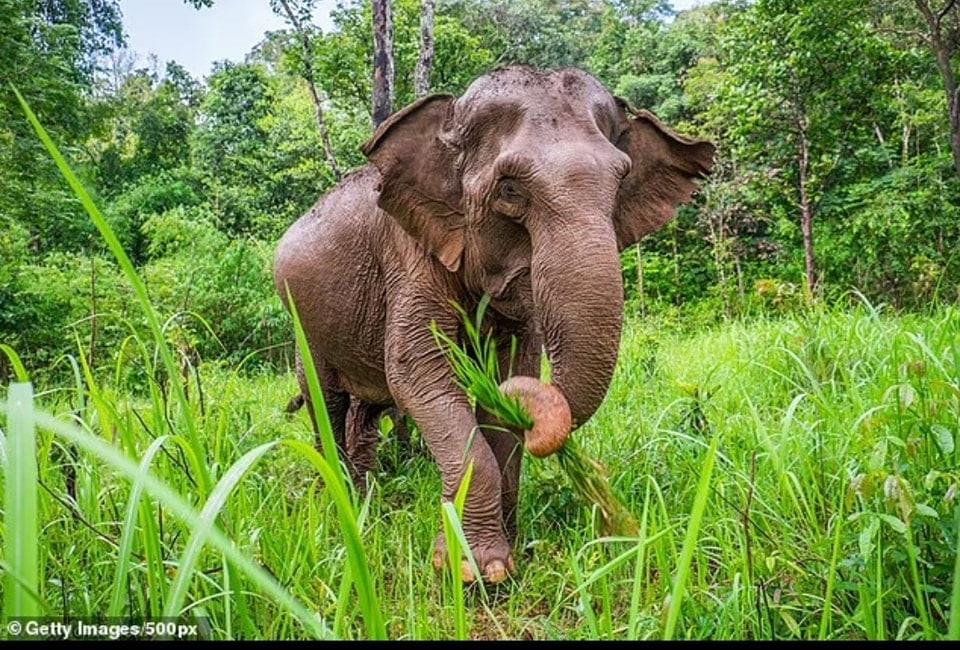Phnom Penh (FN), Jul. 23 – Floating mid-stream in the Mekong River, we hold our breath. Our guide in the kayak next to ours points to where we need to look.
And there it is: a whooshing noise, like a big sigh or sneeze, and the flash of a shiny grey back, curving out of the water and disappearing again. It’s a rare Irrawaddy dolphin. And then another. And another. Sometimes they pop up just feet from the kayak, almost within touching distance.
Irrawaddy dolphins, named after Myanmar’s Irrawaddy River, are found here on the Mekong in Cambodia. They are shyer than their bottlenose cousins, less given to showy acrobatics. But this elusiveness makes them even more mesmerising.
Instead of a long ‘bottle’ nose they have a bulging forehead and short, snubbed beak that gives them a cuddly look. When the river is low from January to May, they gather in nine deep-water pools along a stretch of the Mekong that runs from the Laos border south to the Cambodian town of Kratie, a six-hour minibus ride north-east from the capital Phnom Penh.
The current takes you downstream through tiny islands and a flooded forest. We stop for a swim in the clean, clear water, and snack on sticky rice as our guide explains the challenges faced by these critically endangered dolphins, such as hydro-electric dams built upriver that wreck their habitat. Less than 100 dolphins now remain on the Mekong, though happily two calves were born this year.
That evening, we watch the setting sun while sipping a Mekong Sunset cocktail on the balcony of our guesthouse, the Sorya, which runs the kayaking tours. Angkor Wat, near Siem Reap, put Cambodia on the global tourism map - but its countryside and wildlife are equally entrancing.
Just 13km from Siem Reap is Pearaing Biodiversity Conservation Center, on the northern edge of Tonle Sap Lake, where we see spot-billed pelicans, painted herons, milky storks, and fish eagles.
Conservation is in constant conflict with development in Cambodia, which has lost 15 per cent of its forest in ten years. Illegal loggers and private developers wreak devastation. But there is still untouched jungle where some of the few remaining wild Asian elephants roam, along with porcupines and pangolins, civet cats, sun bears and clouded leopards.
You can help protect them by visiting the country’s Community Based Ecotourism projects. We visit one in Steung Areng village, supported by Wildlife Alliance which protects the Central Cardamom Mountains National Park, the largest mainland rainforest in south-east Asia.
After a five-hour taxi ride south from Phnom Penh my friend and I hop on the back of motorbikes to the starting point. After three hours of sweaty climbing through the jungle, we emerge into a valley where a waterfall trickles into a pool. We swim, eat rice cooked in banana leaves, and sleep in hammocks strung between trees, waking to the jungle orchestra.
We don’t spot elephants, bears or pangolins, but hornbills soar below us and monkeys scamper in treetops. Returning to the starting point, we wait for our motorbikes back to Steung Areng.
Cambodian houses have open fronts, and the people are as open as their homes. It’s not long before we are invited into one and offered drinks. Despite widespread poverty, the warmth of Cambodia’s people makes it a safe and friendly place to travel.
Next we head for the islands off the southern coast. First is Koh Thmei, where we stay in its sole resort - eight lovely beach huts along a palm-fringed beach.
Then it’s Koh Rong Sanloem, where we paddle-board out to watch the sunset and swim amid bioluminescent plankton. It’s as if glitter is spraying from our fingertips. Like the plankton, Cambodia sparkles in so many ways.
This article was originally published on Mail Online.
=FRESH NEWS
